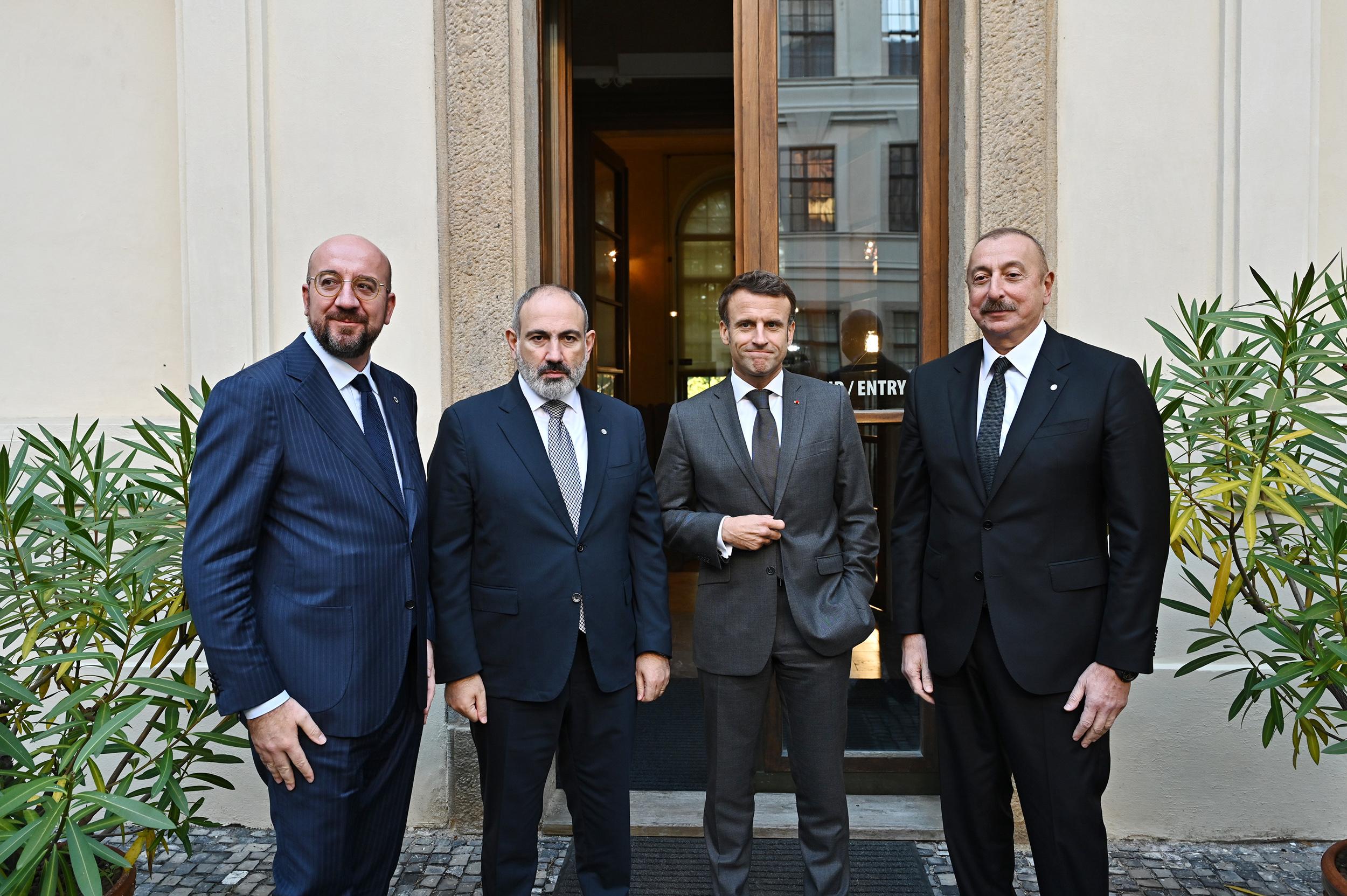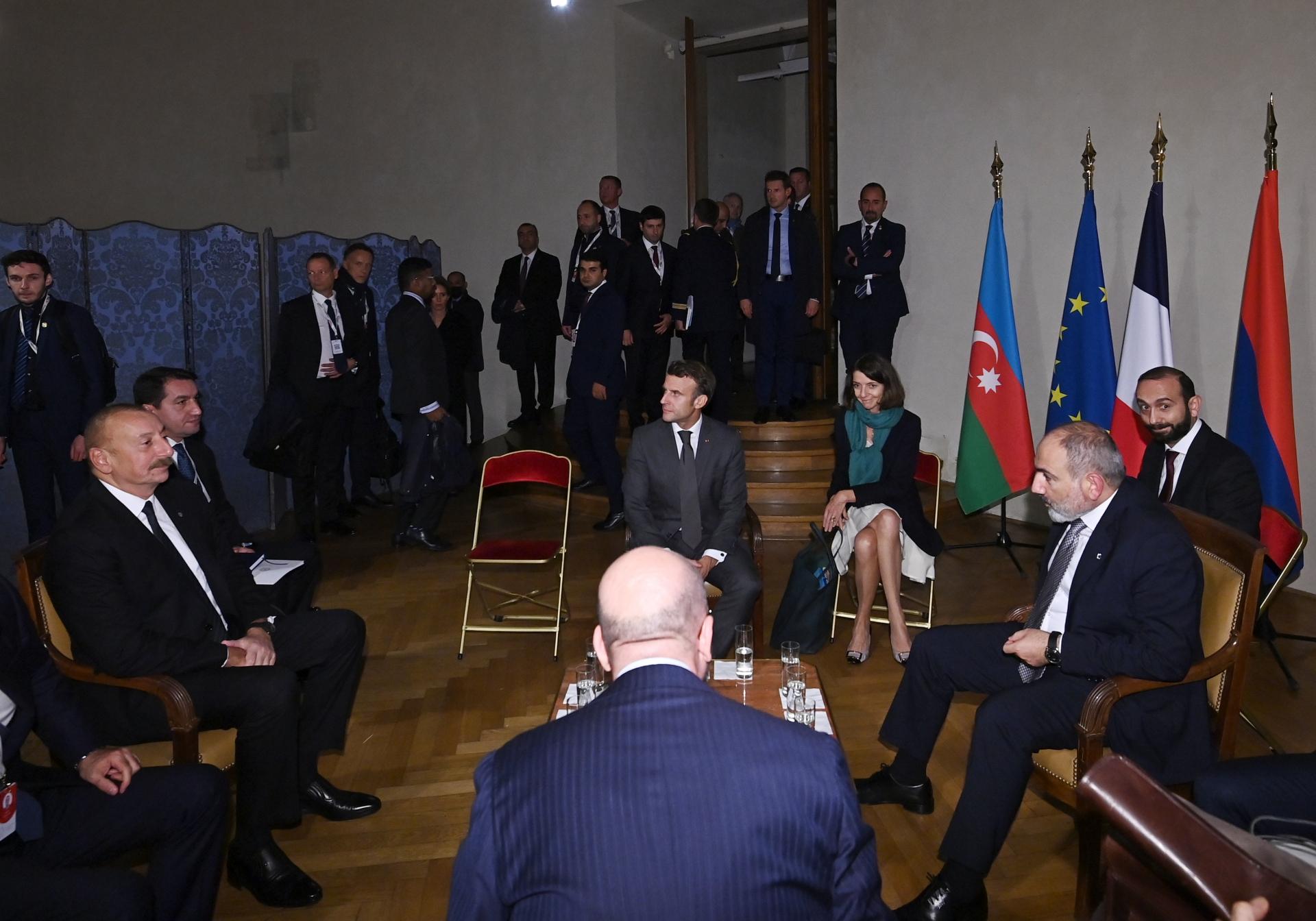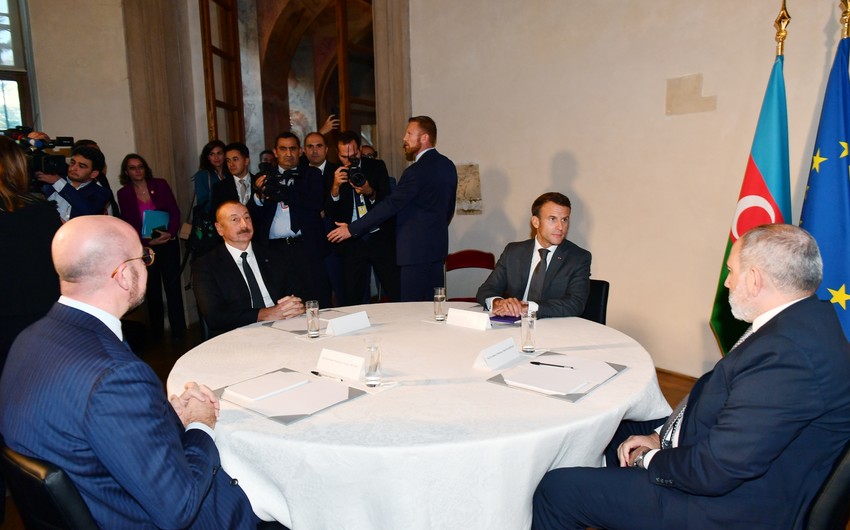The statement adopted at the end of quadrilateral talks of Azerbaijani President Ilham Aliyev with French President Emmanuel Macron, European Council President Charles Michel, and Armenian Prime Minister Nikol Pashinyan in Prague is another diplomatic victory for official Baku. The provisions of the document fully meet the interests of Azerbaijan. Most importantly, Armenia recognized the territorial integrity of Azerbaijan. For this, Azerbaijan has worked hard for 30 years.
At the same time, Azerbaijan recognized Armenia's territorial integrity and sovereignty. The UN Charter was referred to as the primary document during the recognition of territorial integrity and sovereignty. This means Karabakh has once again been confirmed as an integral part of Azerbaijan. By recognizing sovereignty, Armenia recognized Azerbaijan's authority over Karabakh.
The Prague meeting was expected to be intense. Because France, a participant in the quadrilateral negotiations, has always pursued a pro-Armenian policy. Considering this, it could be assumed that various traps and tricks were prepared for Azerbaijan at the quadrilateral meeting held in Prague. Pashinyan behaved confidently at the meeting attended by French President Macron, and official Paris did not hide its support for Yerevan.

Due to the border incidents, France and Armenia were trying to put pressure on Azerbaijan. However, President Ilham Aliyev's determination and principality prevented any form of pressure on Azerbaijan during the meeting, which lasted more than 5 hours and consisted of two parts. The statement adopted at the end also confirms it.
In Prague, it was agreed to hold a meeting of the border delimitation commission soon. This also meets the interests of Azerbaijan. After the end of the Second Karabakh War, official Baku focused on the issue of border delimitation. The delimitation and demarcation of the state border were among the five-point principles proposed by Azerbaijan to Armenia for normalizing relations. Now, Yerevan has agreed to hold a meeting of the border delimitation commission soon. It can be expected that the matter will be decided upon under the auspices of a prestigious organization such as the European Union, and progress will be made soon.

The EU and France wanted to take advantage of this to enter the region by creating a joint border monitoring mission that would also cover the territories of Azerbaijan. But Azerbaijan objected to this. After the firm position of Azerbaijan, the parties agreed that the mission will be only in the territory of Armenia. Azerbaijan will cooperate with the mission in accordance with its interests. The border mission will contribute to and support confidence-building efforts and border delimitation.
The Zangazur Corridor was not included in the statement because it is regulated by the tripartite statement signed by the leaders of Azerbaijan, Russia, and Armenia on November 10, 2020. That document is valid. The opening of the Zangazur Corridor is always actual. It is on the agenda, and work is underway toward its realization. Azerbaijan is forcing Armenia to fulfill its obligations, and it will be continued until its logical end.
Overall, the official Baku achieved its goal at the Prague meeting. President Ilham Aliyev duly protected the interests of Azerbaijan. Armenia once again showed that it is not a sovereign state by agreeing to the border mission. This is also a new and serious step against Russia. Moscow's response to this step by Yerevan, which kept Azerbaijani lands under occupation for 30 years, by relying on Russia, will not come too late.
Analytical Group of Report


 https://static.report.az/photo/1b856288-7f3d-3788-b716-798a9062f816.jpg
https://static.report.az/photo/1b856288-7f3d-3788-b716-798a9062f816.jpg

